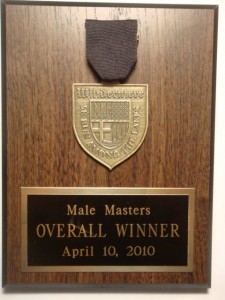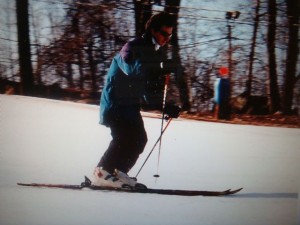
I’m honored to be included in Jeff’s blog, and I’d like to get your help with something.
Most of us arrived at adulthood with the idea that we were in charge of our own lives, and that as adults, we could do things our own way. We operate with this thought in mind until reality comes along and reminds us that we can’t defy the laws on nature. It’s during these “midlife moments” that we wake up and realize that we’re not as invincible as we once thought we were, and that we can’t afford to put off the things that are really important.
Here an example of what I’m talking about. I’ve always been very proud of my youthful appearance. I inherited it from my two very youthful parents. Although both of my parents are in their seventies, they are both still very active and look much younger than their years.
For a long time, I thought of this as my genetic curse. When I was in college, people thought I still looked like a kid, and they treated me accordingly. In the early stages of my career, I felt like I wasn’t taken seriously because I didn’t look experienced enough. Later, however, I came to see this youthful appearance as a blessing. I went to a 20-year class reunion and was struck by how much everyone in my class had aged. It sounds conceited, but I left that reunion saying to myself, “Damn, I look good!”
But the good times can’t last forever. One thing I had become accustomed to was being carded. I don’t buy alcohol very often, but when I do, I was used to having the clerk say, “Can I see some ID?” So I’ll never forget that moment when I was buying a bottle of wine to take to a party…and the clerk forgot to ask to see my driver’s license. I thought to myself, “This girl is really off her game, of course I need to be carded.” So I opened my wallet and said, “Don’t you want to see my ID?”
She smiled at me weakly, and said, “Uh…sure.” And at that moment, it hit me: I guess I don’t look 21 anymore. She might as well have said, “Oh yeah, of course I want to see your ID…old man!” Because in that moment, that’s how it felt to me.
Even though the moment was a blow to my ego, I still think I look damn good for my age. I just don’t expect to get carded anymore. And that’s okay by me.
What are some of your most memorable examples of “mid-life moments?” I’d like to hear from you! Please send your favorite midlife moments to Jeff as a comment or email and we’ll share the most intriguing ones here on Mid Life Celebration. Want some thought-starters? Here are a few:
*The day you went from being addressed as “Miss” to “Ma’am”
*The day someone commented on how “distinguished” you look
*The day you realized you couldn’t read the fine print anymore
Looking forward to hearing from you!



